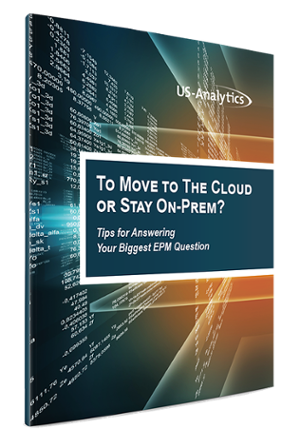There’s been a lot written about tribal knowledge and how it can stunt your organization’s growth and progress. Most recently, Oracle published a post in their Modern Finance Leader blog about how tribal knowledge can leave your growing company “floundering.”
One thing all these articles have in common is pointing out the issues caused by tribal knowledge — that it creates dependency and inaccuracies. This can be especially true and dangerous for the finance office. So, what specific actions can finance leaders take to solve their tribal knowledge problem? That’s what we’ll be exploring in this blog post.
But first, let’s make sure were on the same page. In the corporate world, tribal knowledge tends to include information like rules or processes that a group (or department) in your company knows, but no one else. In some cases, it might only be one person — and if that person leaves, all that valuable information goes with them.
Tribal Knowledge in the Finance Department
Tribal knowledge in the finance department can be summed up in one word: spreadsheets. Everyone in finance has heard that spreadsheets cause data inconsistency and slowdowns but that doesn’t mean you have to abandon Excel completely. It's still a great tool for your daily work.
The problem is when a spreadsheet is your single source of truth, or when the person who created it is the only one who understands it. If that person leaves or goes on vacation, the data might get confused or the wrong information can get passed up to management. Even more problems come in when you begin sharing the spreadsheet and versioning gets confused.
So, what do you do? Oracle says the answer is to implement an enterprise performance management (EPM) cloud solution, but we’re going to go into a few more details and steps you can take. It’s not easy to simply “implement an EPM solution.” There are a few more steps you can follow to ensure that you’re not only solving your tribal knowledge problem, but you’re also improving your processes.
Defining Enterprise Performance Management
If you’re already familiar with EPM, feel free to skip this section. There a ton of acronyms flying around the corporate world and things can get confusing. This section is to refresh you on EPM is and why it’s important to your organization.
EPM software allows you to analyze, understand, and report on your business. It focuses first on finance and how it can drive decision-making in the other areas of your organization, including Sales, Marketing, Operations, IT, and HR.
EPM focuses on several integration business processes, including…
- Strategic modeling
- Planning and Budgeting
- Financial Close and Consolidation
- Reporting
- Analyzing Performance
That’s just the quick rundown. If you want more information, including the history and future outlook of EPM, check this out.
Choosing the Best Technology for Your Organization
Before you even begin planning your EPM project, you need to find the best technology for your organization. Within Oracle, there’s on-premises solutions as well as cloud-based EPM solutions. Some of these include…
- Hyperion Financial Management (HFM) (on-prem)
- Hyperion Planning (on-prem)
- Hyperion Financial Close Management (FCM) (on-prem)
- Planning and Budgeting Cloud Service (PBCS)
- Financial Consolidation and Close Cloud Services (FCCS)
There are also new contenders within the EPM space, such as OneStream XF, a platform that includes all the core functionality (reporting, financial close, planning, etc.) in one solution.
If you need help deciding between these technologies, as well as the cloud vs. on-prem, we’ve covered it all in this eBook...
Building a Roadmap
Chances are tribal knowledge isn’t the only problem that your finance department is experiencing. It might be the problem that led you to make changes, but now is the time to assess your processes and look for improvements.
At this point, you know that technology is the answer and you've chosen a technology that you believe will be the best fit for your organization.
So, what now? How do you start planning such an extensive project that's sure to make waves throughout your organization?
Fortunately, our expert advisers have broken down the steps to implementing a successful EPM project.
- Identify Your Complexity Gap — This the amount of change your project is expected to bring, combined with your organization’s ability to embrace and manage change.
You can read more about the complexity gap here. - Create a Gap Analysis — This exercise takes your complexity gap and analyzes what must be done to close the gap and achieve success.
Read more about creating a gap analysis. - Selecting an Implementation Partner — Your team is keeping your business going and you need someone with experience to successfully complete your project. This is where you can use your gap analysis to help you find a partner with a combination of functional expertise, project management experience, and technical abilities to execute your implementation.
Learn more about choosing an implementation partner.
Your implementation partner will work with you to build a roadmap which will help keep your project on time and organized. Check out this blog post to see what a successful roadmap looks like.
Conclusion
Solving your tribal knowledge problem is obviously going to take some time. Like I said above, “implementing a solution” is not an easy task. And, before you can even think about the implementation, you first have to choose a technology.
You have a lot of options and a lot of work to do, but you don’t have to do it alone. You can work with experts who have decades of experience and can help you achieve the best possible results.





